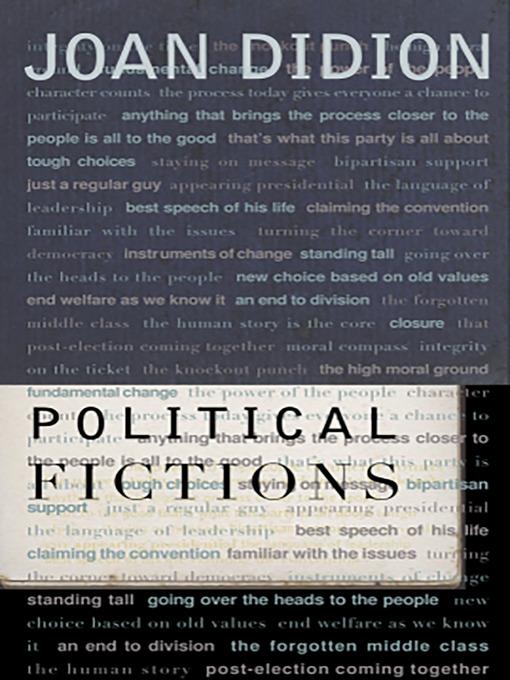
Political Fictions
کتاب های مرتبط
- اطلاعات
- نقد و بررسی
- دیدگاه کاربران
نقد و بررسی

August 6, 2001
Eight essays by noted novelist and nonfiction writer Didion (The Last Thing He Wanted,
etc.), many originally published either in whole or in part in the New York Review of Books,
cover politics from 1988 through the 2000 election. At her best, Didion is provocative, persuasive and highly entertaining. She presents a fresh perspective on the oft-analyzed Reagan and Clinton presidencies, especially the Lewinsky scandal. As the title implies, her focus is how the press, think tanks, political strategists and opinion makers conspire to create stories that reflect their biases and serve their own self-interest. Didion's willingness to skewer nearly everyone is one of the pleasures of the book. The bestsellers of Washington Post
journalist Bob Woodward, according to Didion, "are books in which measurable cerebral activity is virtually absent." Cokie Roberts, along with the rest of the Washington press corps, is depicted as a whining moralist aghast at the public's failure to grasp the message in the Clinton-Lewinsky story, which is, as Didion quotes Roberts, "that people who act immorally and lie get punished." Another pleasure is Didion's forthrightness. She tackles directly Vice President Gore's decision to run away from Clinton during the 2000 election. She is unafraid to closely examine the increase in religious rhetoric in American politics. On that topic, many Americans will find disturbing Didion's analysis of the relationship between President Bush's compassionate conservatism, faith-based initiatives and evangelical Christianity. This book will offend many Democrats, particularly of the Democratic Leadership Council persuasion, and many more Republicans, but it is members of the press who fare most poorly. To Didion, they are purveyors of fables of their own making, or worse, fables conceived by political strategists with designs on votes, not news. (Sept. 18)Forecast:Higher-brow readers who missed Didion's pieces in the
New York Review of Books will grab this, with its first printing of 40,000. She will do publicity in N.Y., L.A., and D.C., and national media including NPR,
Charlie Rose and C-Span. This is a selection of Reader's Subscription Book Club.

October 1, 2001
In this collection of pieces reprinted from the New York Review of Books, Didion reveals her discovery that much of what goes on in American political life is gasp! inauthentic, designed for media propagation. Moreover, a small political and media elite dominates the political discussion, excluding working-class Americans (with whom Didion laughably identifies herself) from any meaningful role (those pesky elections notwithstanding). These grumpy, ephemeral essays, in turn trivial and tediously repetitious, contain single sentences that run nine lines and many others that are shorter but still opaque. Didion fans interested in her explanation of Newt Gingrich's personal unpopularity or her analysis of Ken Starr's obsession with Clinton can hunt up these exegeses in the old issues of the Review. For Didion fans only; not recommended. [Previewed in Prepub Alert, LJ 5/1/01.] Cynthia Harrison, George Washington Univ., Washington, DC
Copyright 2001 Library Journal, LLC Used with permission.

August 1, 2001
In her first essay collection since the potent " After Henry" (1992), Didion recounts her initial but short-lived reluctance to accept an assignment from the" New York "Review of Books to cover the 1988 presidential campaign. Since then, she has continued to masterfully and precisely parse wag-the-dog political fabrications and concomitant distorted press coverage and now presents eight stellar examples. With one eye on the action and the other on the headlines, Didion explicates the government's success in disseminating "fictions" about Grenada, where "the number of medals awarded eventually exceeded the number of combatants," as well as the massacre in El Salvador. Spiked with jolting scenes from the tainted reigns of Reagan, Bush Senior, Gingrich, and Clinton, these are lacerating chronicles of the cynical and arrogant machinations of a "permanent political class" that has nothing but "casual contempt for the electorate at large," travesties of democracy that would be so easily overlooked if clear-eyed, truth-seeking writers like Didion, a superb stylist to boot, weren't on the case.(Reprinted with permission of Booklist, copyright 2001, American Library Association.)

























دیدگاه کاربران